- Darton College is a comprehensive community-oriented institution within the University System of Georgia. Its principle mission is to provide educational programs, services, and opportunities to eligible citizens of southwest Georgia.
School Highlights
Darton State College serves 5,623 students (47% of students are full-time).
The college's student:teacher ratio of 28:1 is higher than the state community college average of 18:1.
Minority enrollment is 40% of the student body (majority Black), which is less than the state average of 61%.
Quick Stats (2025)
- Enrollment: 5,623 students
- In-state tuition: $3,502
- Out-state tuition: $9,428
- Acceptance Rate: 84%
- Student:teacher ratio: 28:1
- Minority enrollment: 40%
- Source: Integrated Postsecondary Education Data System (IPEDS)
Top Rankings
Darton State College ranks among the top 20% of public schools in Georgia for:
Category
Attribute
Community Size
School Overview
The teacher population of 199 teachers has stayed relatively flat over five years.
Darton State College
(GA) Community College Avg.
Carnegie Classification
Associates Colleges
Associates--Public Rural-serving Medium
Institution Level
Four or more years
At least 2 but less than 4 years
Institution Control
Public
Public
Total Faculty
199 staff
209 staff
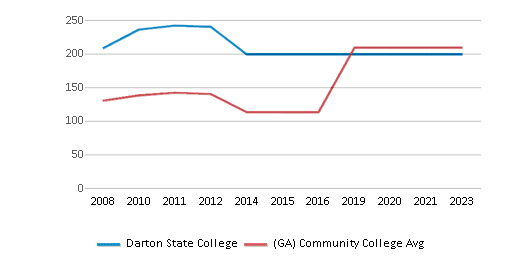
Student Body
The student population of Darton State College has stayed relatively flat over five years.
The student:teacher ratio of 28:1 has stayed the same over five years.
The Darton State College diversity score of 0.53 is less than the state average of 0.71. The school's diversity has stayed relatively flat over five years.
Total Enrollment
5,623 students
2,242 students
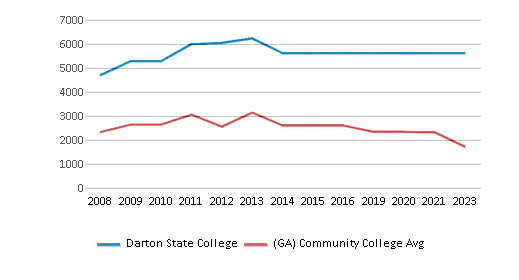
Student : Teacher Ratio
28:1
18:1
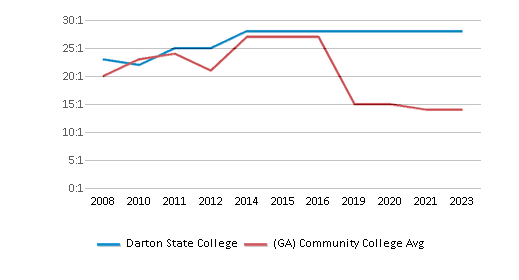
# Full-Time Students
2,629 students
882 students
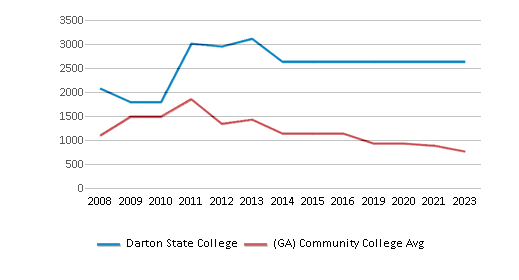
# Part-Time Students
2,994 students
1,722 students
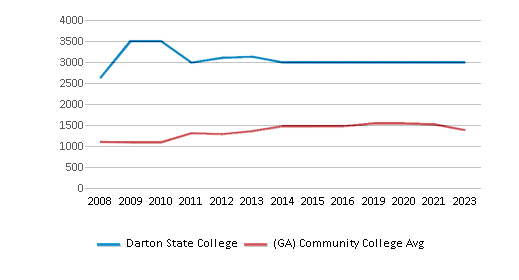
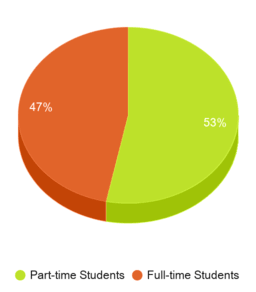
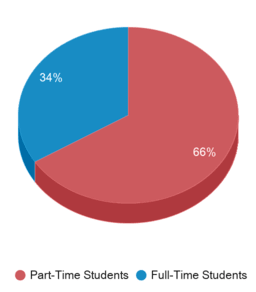
# Enrollment Undergraduate
471 students
299 students
# Full-Time Undergraduate Students
2,629 students
929 students
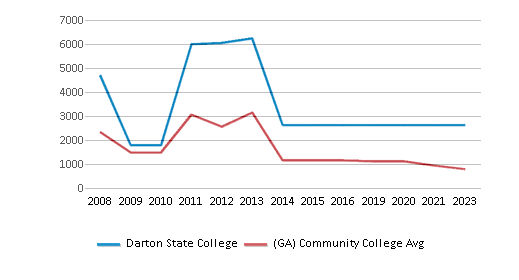
# Full-Time Graduate Students
n/a
87 students
# Part-Time Undergraduate Students
2,994 students
1,891 students
# Part-Time Graduate Students
n/a
53 students
Total Dormitory Capacity
461 students
654 students
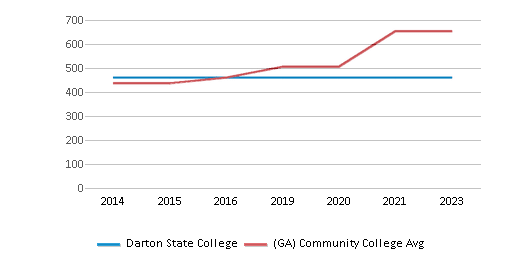
% Asian
1%
4%
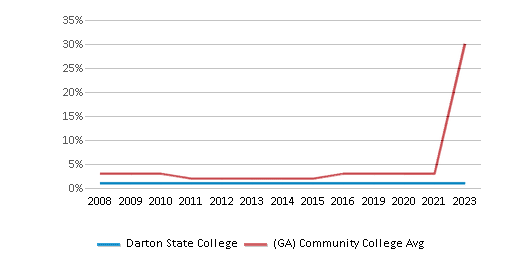
% Hispanic
3%
10%
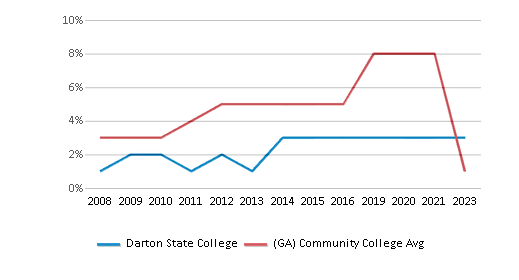
% Black
33%
35%
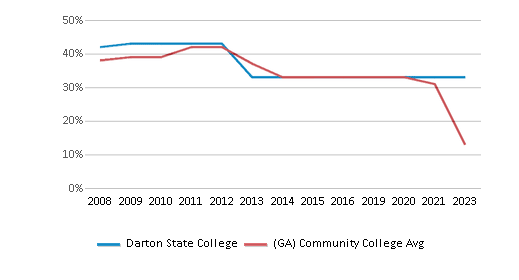
% White
60%
39%
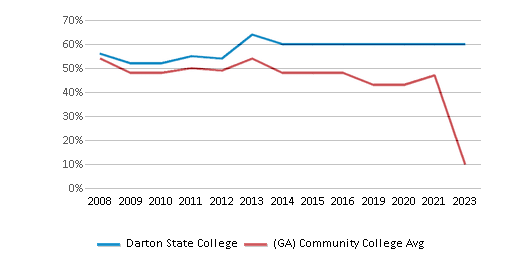
% Hawaiian
n/a
1%
% Two or more races
n/a
3%
% Non Resident races
2%
1%
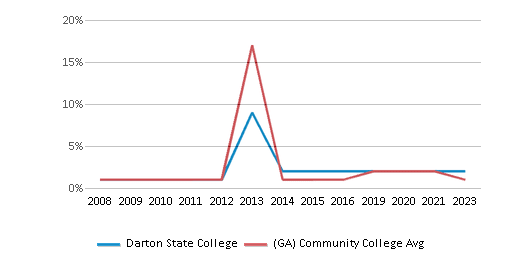
% Unknown races
1%
7%
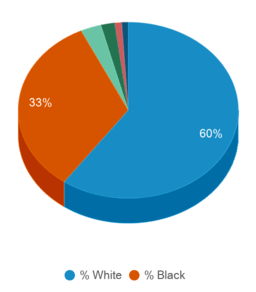
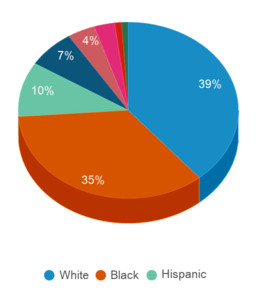
Diversity Score
0.53
0.71
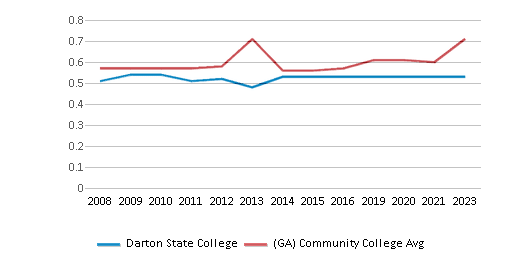
College Completion Rate (Students who graduate in less than 4 years)
13%
27%
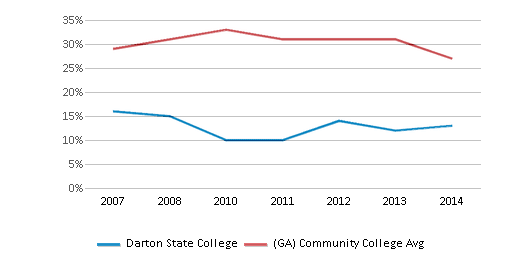
College Completion Rate (Students who graduate in 4 years or more than 4 years)
n/a
0.2368%
Average Graduate Earnings (10 Years)
$33,800
$29,500
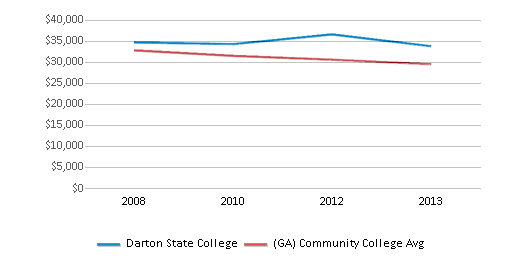
Tuition and Acceptance Rate
The public in-state tuition of $3,502 is more than the state average of $3,120. The in-state tuition has grown by 15% over four years.
The public out-state tuition of $9,428 is more than the state average of $6,995. The out-state tuition has grown by 10% over four years.
In-State Tuition Fees
$3,502
$3,120
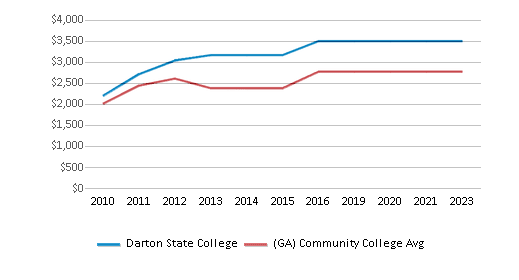
Out-State Tuition Fees
$9,428
$6,995
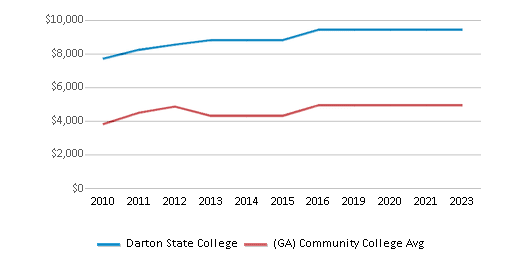
% Students Receiving Some Financial Aid
92%
93%
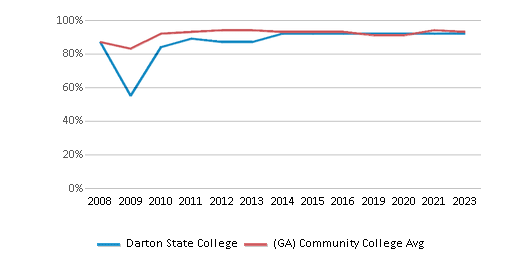
Median Debt for Graduates
$14,287
$12,000
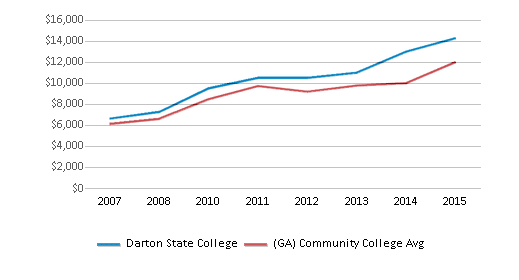
Median Debt for Dropouts
$7,713
$5,500
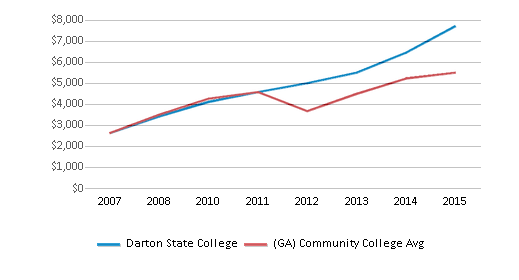
Acceptance Rate
84%
72%
SAT Reading (Year 2007)
435
470
SAT Math (Year 2007)
428
455
SAT Writing
n/a
465
ACT Composite (Year 2007)
17
17
ACT English (Year 2007)
17
17
ACT Math (Year 2007)
17
17
ACT Writing
n/a
7
Source: 2023 (or latest year available) Integrated Postsecondary Education Data System (IPEDS)
School Notes
- Darton College in Albany, Georgia, is a two-year college of the University System of Georgia offering Associate of Arts, Associate of Science, and Associate of Applied Science degrees, and one-year certificate programs. The modern classrooms and labs, as well as the beautifully landscaped 180-acre campus, offer students a perfect college setting. The arts - music, theater, photography, and literature are alive and well at Darton. Intercollegiate athletic programs are offered in men's and women's soccer and swimming: women's basketball and softball; and men's baseball and golf. Intramural activities and clubs for almost every interest are also available. Darton College's faculty and staff take pride in Darton's record of academic excellence and the philosophy of a student-centered education. The college offers 73 two-year transfer and career associate degrees. In addition, Darton offers distance learning courses through local Channel 19 telecasts, web-based instruction, GSAMS video-conferencing, and at selected regional sites off the main campus. Darton College has a strong presence in state distance learning initiatives, and its core curriculum courses in many programs of study are available through distance learning options. Darton College currently offers 16 complete degrees. We are a leader in providing distance learning options to advance your career. Our fully accredited online degree programs are designed for your success. Our online Associate of Science degrees are delivered on the Internet with WebCT. You'll attend class online, with convenience and flexibility that works around your hectic work and family schedule. Darton College provides online learners with free technical support, advising, and student services. Get started on your degree today and get on the path to better opportunities.
Frequently Asked Questions
How much does Darton State College cost?
Darton State College's tuition is approximately $3,502 for In-State students and $9,428 for Out-State students.
What is the acceptance rate of Darton State College?
The acceptance rate of Darton State College is 84%, which is higher than the state average of 72%.
What is Darton State College's ranking?
Darton State College ranks among the top 20% of community college in Georgia for: Largest student body.
Recent Articles

Obtaining Your Bachelor's Degree at a Community College
Explore the evolving landscape of community colleges offering bachelor's degrees, addressing affordability, accessibility, and workforce needs.

A to Z of Community College Certificates and Courses
From business and healthcare to technology and skilled trades, the article showcases the breadth of options available to students seeking to enhance their knowledge, develop new skills, or pursue career advancement.

What is a Community College?
This comprehensive guide explains what a community college is, its history, and its role in higher education. It covers the types of programs offered, differences from four-year colleges, benefits of attending, and important considerations for prospective students, providing valuable insights for those exploring educational options.









